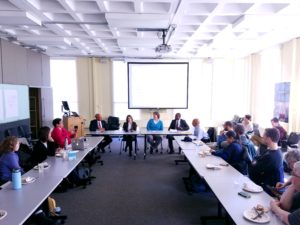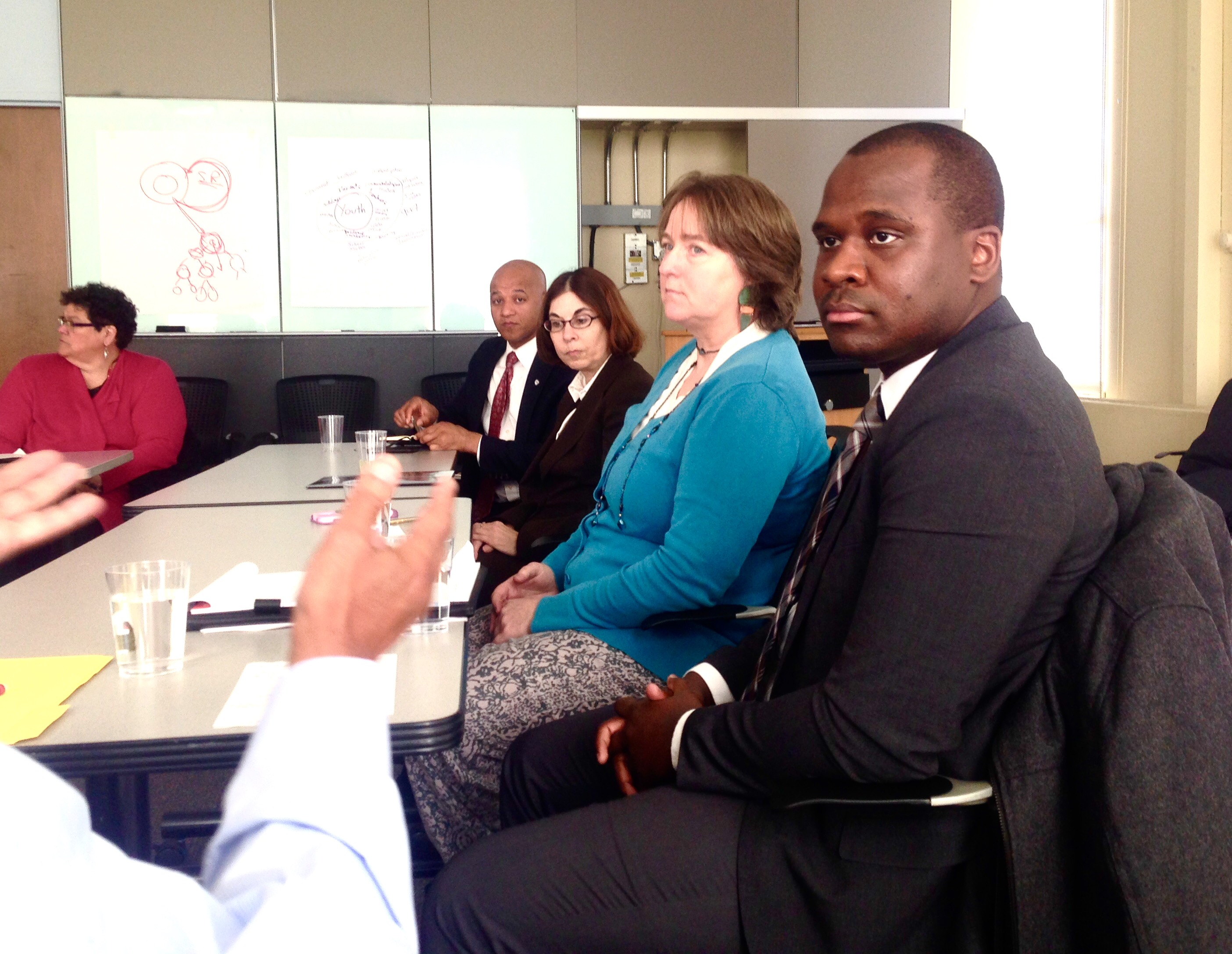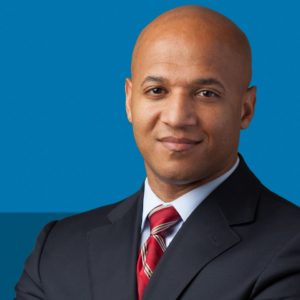
Photo by Tom Nash
A panel, assembled by UEP student John Barros, chief of Boston’s Economic Development, discussed financial stabilization issues for area families in the first of a policy seminar series.
The federal government is failing the poor, said John Barros, and this is a time to rethink what is happening on the local level.
“We need to take a different role locally,” said Barros, chief of Economic Development in Boston. “Something is happening that allows us to rethink this country, reshape capitalism.”
Barros, a Master of Public Policy student at UEP, kicked off the first in a series of policy seminars at Tufts University with a panel on Financial Stabilization for Boston Families.
In Boston, 46 percent of households don’t have enough savings to remain above the poverty line for three months if they suffer a major disruption, Barros said. For African Americans, that number is 69 percent, and for Latina/o families 75 percent.
Boston is no different when it comes to the increasing inequality in America, Barros said, but the social safety nets for the poor are eroding. He added that the Trump administration has reignited conversations about the deserving and undeserving poor.
“What’s coming out of Washington D.C. is scary,” Barros said.
To further exacerbate the inequalities, said panelist Margaret Miley, strategic advisor at The Midas Collaborative, there is inequality in expenses for the poor.
“Poor people pay so much more for everything,” Miley said, noting that 25 percent of Massachusetts adults with credit reports have debt in collections and have few consumer protections.
The panelists — which also included Constance Martin, deputy director at the Office of Financial Empowerment in Boston; Carlos Moreno, coordinator of the Mobility Mentoring Center at EMPath — discussed some of the local initiatives to mitigate inequality in the area, such as financial empowerment centers, LISC programs for entrepreneurs unable to get loans, the Midas Collaborative Matched Savings program, and Boston Saves.
Boston Saves was launched in January and the program supplied 250 kindergarteners with Children’s Savings Accounts (CSAs) to help families save for the child’s educational future, said Martin. Each child received $50 in a seed account, an online tracking system, and access to financial literacy events.
Savings are “matched by parents,” Martin said. “When you have savings, you’re four times more likely to go to college. It creates a mindset for families who didn’t necessarily think about higher education (as an option).”

Photo by Monique Ching
Panelists (from left) John Barros, Constance Martin, Margaret Miley, and Carlos Moreno take questions.
Responding to questions about transit, Barros noted that ride-sharing services such as Uber and Lyft have actually brought service to communities that were once invisible.
While working at the Dudley Street Neighborhood Initiative “it was difficult to get a cab in Roxbury,” Barros said.
He added that spotty public transit service to low income areas is just another aspect adding to the cost of being poor.
“It takes certain parts of the city more than an hour to get to downtown,” Barros said.
The city will do better if it can maximize human production and the ability for all to participate in the economy, Barros said. Tying this back to the Trump administration, he noted that devaluing women, people of color, or immigrants is bad for business.
“Doing good can be good for you,” Barros said. “The innovation economy cannot survive without difference.”
This was the first in a series of policy seminars hosted by the Urban and Environmental Policy and Planning (UEP) program. The schedule will be released once it is finalized. Check back for updates.


Thanks for a great recap of this event! Another point that stood out to me from the panelists was Carlos Moreno’s point that you have to consider the situation of each individual and family when trying to provide services and support. From a policy and program design perspective, that means that “one size does not fit all.”
Yes! Thanks for adding that Penn!
Comments are closed.